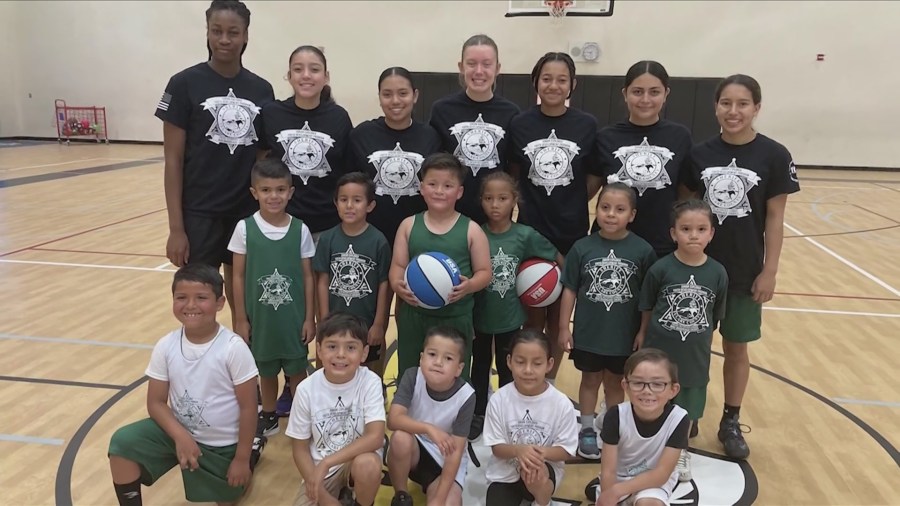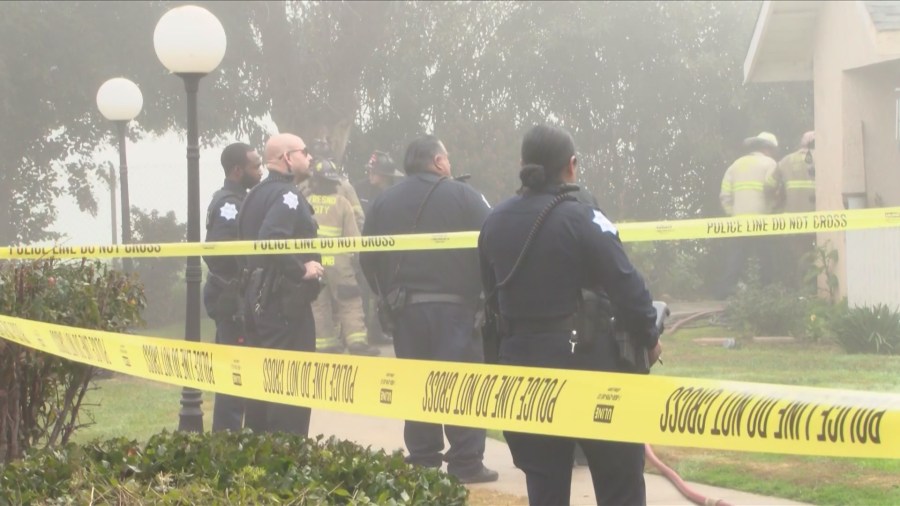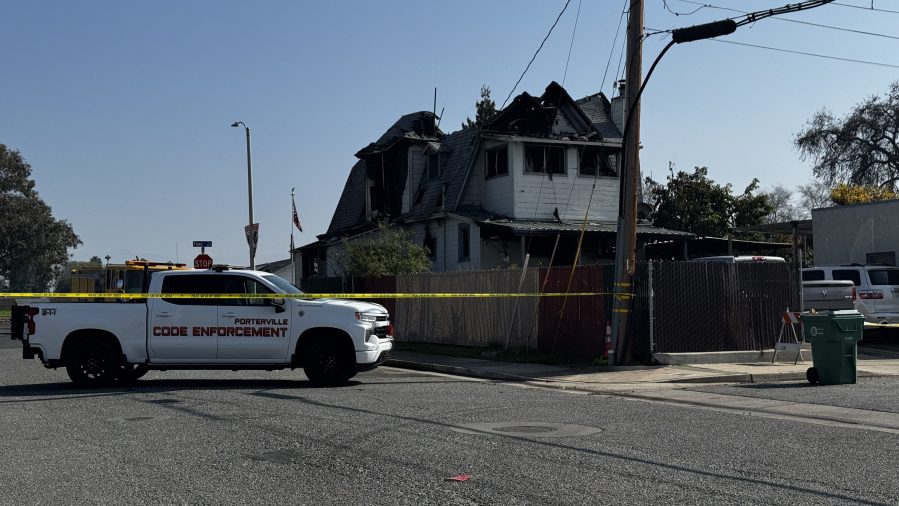


No one makes a hangout movie like Jim Jarmusch. From From his feature-length debut Permanent Vacation onward, the American writer/director has woven his affinity for intimate settings and observational humor with various flourishes. Only Lovers Left Alive gave us vampires lounging around a rotting Detroit. The Dead Don't Die offered ghouls with the energy and desires of a late-night hang, craving coffee and chardonnay (and brains). Now, FATHER MOTHER SISTER BROTHER offers the familiar family hang — one that's authentically awkward, funny, and tragic.
Set over the course of three vignettes, Jarmusch's latest keenly illustrates how families are all different and the same. His astoundingly stacked cast boasts Tom Waits, Adam Driver, Mayim Bialik, Charlotte Rampling, Cate Blanchett, Vicky Krieps, Sarah Greene, Indya Moore, and Luka Sabbat. Together, they construct short yet solid stories of three families in moments both mundane and pivotal, creating an absorbing portrait of love that's messy and profound.
Adam Driver, Mayim Bialik, and Tom Waits make for a quirky kickoff.
"Father" is the first of three chapters of the film. In a small town in New Jersey, brother and sister Jeff (Driver) and Emily (Bialik) head to visit their dad (Waits), and they're anything but eager. Stiff in woolen blazers, V-neck cardigans, slacks, and a long skirt, they are dressed as if on their way to a business meeting rather than to reunite with the father they haven't seen in two years. Pulling up to his ramshackle house, which sits at the end of very long muddy driveway, it's clear they don't belong here.
Waits, meanwhile, is dressed in battered striped pants, a hoodie, and a head of hair that's not seen a brush or a bit of product in ages. Their dad's home is cluttered with books and laundry, as if in the wake of their mother's death years before he can barely care for himself. However, there are hints that their father (who goes unnamed) has a life outside of their understanding of him, like the glistening Rolex on his wrist.
Within this reunion, Jarmusch's script reveals some backstory, touching on death, illness, divorce, and precocious grandchildren. But the movie keeps us firmly in this place, in this moment, where this family is perplexed about how to reconnect. There's no bad blood, but more confusion on how this father created these kids.
Where they are almost perversely proper, polite, and put-together, he seems a weary whirlwind, embarrassed to be caught mid-spin. The conflict they encounter is not one of shouting or smashed plates, but swallowed arguments and a shared grief they can't bear to say aloud. So instead, they'll be civil and stay on the surface with small talk. Yet the visual storytelling and nuanced performances Jarmusch knits together allow the audience to probe deeper than these preppy siblings can dare.
Charlotte Rampling, Cate Blanchett, and Vicky Krieps clash as mother and daughters.
"Mother" follows "Father," transporting the film to Dublin, where a romance author (Rampling) is welcoming her two grown daughters for their annual afternoon tea. Where this matriarch is intimidatingly intellectual and chic, her daughters are a study in contrast. Timothea, or Tim for short (Blanchett), is a mousy pencil pusher who fusses and frets but always at a low volume, lest she be a bother. Little sister Lilith (Krieps) is a free spirit with pink hair, a comically casual attitude, and a penchant for lying about great successes to impress her mother.
There's no drastic divide between this trio. Like the "Father" family, they've drifted apart, seemingly content to have lives of their own. But in this household, their proximity practically itches. Lilith looks for ways to razz her sister, sparking a juvenile sibling rivalry that forces Tim into flushed retreat. But these intrusions and escapes are all in the gentle way of making nice. The tragedy of these moments is in how we can see their urge to connect and their fear to, all in a furtive glance, a choked laugh, or a licked bit of pastry.
Hilariously cast as the most boring person in this movie, Blanchett nonetheless exudes a quiet anxiety, giving pangs to every passive aggression from Krieps' provocateur. Then Rampling adds a primly prickly veneer that's sharply funny. For instance, when all three realize they're wearing red (a tailored dress, a modest turtleneck, a frayed novelty sweater), the mother declares it "embarrassing," pushing her daughters into opinions that throw them into cringeworthy opposition.
It's in such small moments that Jarmusch allows his audience to determine the meaning of these scenes, and this collection of stories. But where the first two sections of this triptych are about relatively strained relationships, the final is a warm portrait of almost supernatural closeness.
Indya Moore and Luka Sabbat are a revelation as twins.
Across all three, Jarmusch laces shared elements, like red clothing, a Rolex watch, clumsy toasts with non-alcoholic beverages, images of young skateboarders rolling by carefree and in slow motion, and some iteration of the idiom "Bob's your uncle." But in this chapter, he breaks the pattern of a family of three. In the Paris-set "Sister Brother," Indya Moore and Luka Sabbat play twins surveying what remains of their childhood home in the wake of their parents' deaths.
It's been weeks since their passing, so the stab of loss is not as sharp. Instead, the twins get to enjoy the easy comfort of each other's company. Like Jeff and Emily, they share an aesthetic. But it's far from preppy, favoring leather jackets and streetwear with an aspirational sense of chill. Whether chatting in the car, getting a coffee, or looking over childhood photos, they are at ease. Where the other families all showed a need to perform for each other, these twins have a connection so deep that it predates birth. They swear that even over oceans, they can sense when the other is getting sick or getting high.
While each of Jarmusch's family units in FATHER MOTHER SISTER BROTHER feels familiar, Moore and Sabbat are so convincing in their chemistry and connection that I began to wonder if they actually are twins. (They are not.) This radiant love for one another smooths the cutting edges of the grief of their story, because unlike the other chapters' characters, they are not alone together. They are together even when they are alone, because they truly see each other and don't shrink from such honesty and vulnerability.
Following the press screening at the New York Film Festival, Jarmusch said in a Q&A that he didn't make this movie with a message in mind. To suggest there's a resolute message would be to misrepresent the gentle development of every section of this film. Yet viewed as a whole, I found FATHER MOTHER SISTER BROTHER breathtaking in what it has to say about family. On one level, it's a reminder that every family is different and the same. We are all connected by a bunch of experiences, big and small, that are just so common they might be overlooked without the focus of a filmmaker on them. But beyond that, FATHER MOTHER SISTER BROTHER is a cool, rich, and wonderful celebration of familial love, which binds us and defines us — but not entirely.
Part of the beauty of this film is where Jarmusch leaves each story. He's rarely been one for buttoned-up conclusions. And here, he essentially offers not even a day, but a few hours in the lives of people bound by blood, and — what else? We get a window into their lives, and a glimpse of how they see each other. Then, their story moves on without us. Where will they go? What will they experience? It's a mystery the movie won't dwell on, but we can.
In that, FATHER MOTHER SISTER BROTHER invites us not only to see ourselves in the families for better or worse, but to imagine what might exist in the lives of our loved ones once they've closed the door and the visit has ended.
FATHER MOTHER SISTER BROTHER was reviewed out of it North American premiere at the New York Film Festival. MUBI will release the film in theaters on Dec. 24.
Topics Film

Kristy Puchko is the Entertainment Editor at Mashable. Based in New York City, she's an established film critic and entertainment reporter who has traveled the world on assignment, covered a variety of film festivals, co-hosted movie-focused podcasts, and interviewed a wide array of performers and filmmakers.








